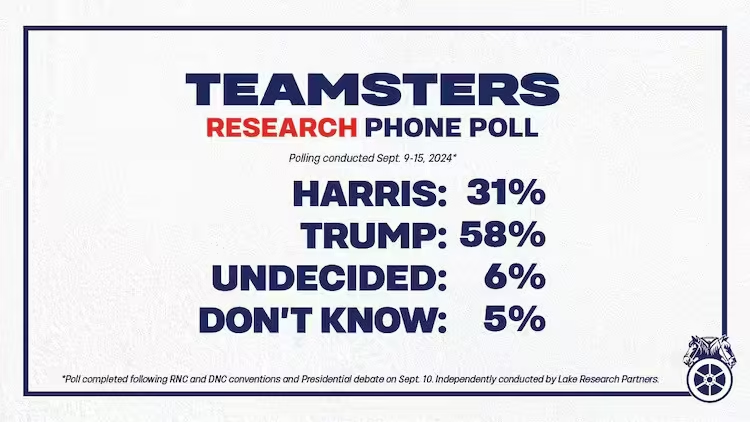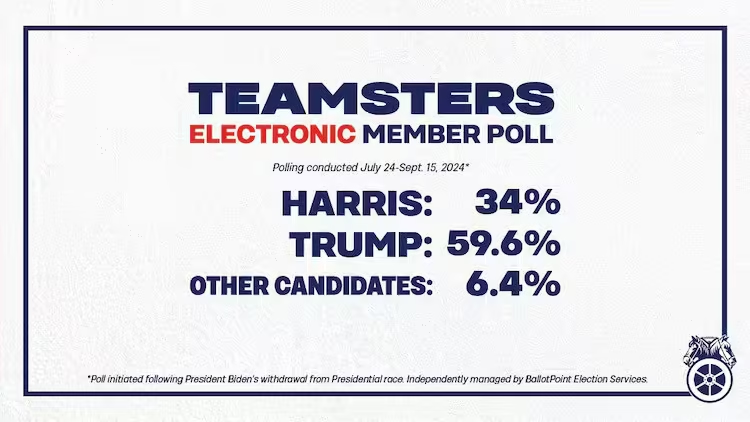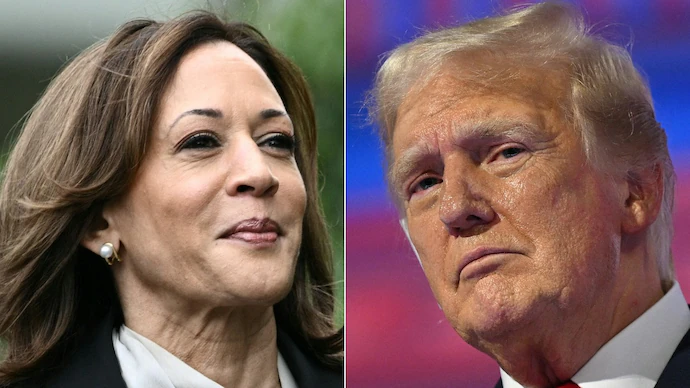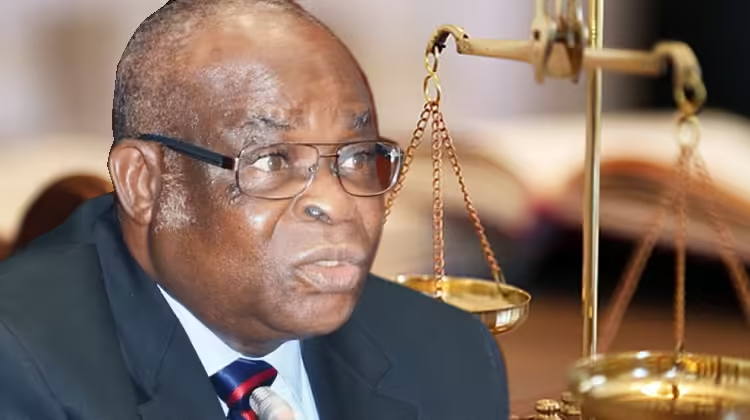In a significant development ahead of the 2024 election, the International Brotherhood of Teamsters, one of the largest and most influential labor unions in the U.S., announced it would not endorse a presidential candidate. The union, which represents over a million members across industries like transportation and construction, has historically been a powerful political force, particularly in Midwestern battleground states. However, internal divisions and growing support for Donald Trump among its rank-and-file members led to this unprecedented decision.
Teamsters President Sean M. O’Brien confirmed the lack of consensus, explaining that neither Kamala Harris nor Donald Trump made sufficient commitments to the union’s key demands, including protecting the right to strike and avoiding interference in union activities. “We sought commitments from both Trump and Harris… but were unable to secure those pledges,” O’Brien stated, reflecting the union’s frustration with both candidates.

This decision follows a private survey indicating nearly 60% of Teamsters members favored Trump, a notable shift in a union that traditionally leans Democratic. Trump’s message of economic nationalism and focus on working-class issues has resonated with many union members despite his controversial labor record, including recent remarks endorsing the firing of striking workers. This creates a complicated landscape for Vice President Kamala Harris, who has been actively courting labor support, positioning herself as the inheritor of Biden’s pro-union legacy.
Historical Context of Teamsters Endorsement
The Teamsters’ endorsement has been a major asset in past elections, often signaling a candidate’s strong support from blue-collar workers. Historically, the union’s backing has played a pivotal role in rallying working-class voters in key states such as Michigan, Ohio, and Pennsylvania, where labor influence can make or break campaigns. In 2008 and 2012, the Teamsters backed Barack Obama, contributing to his victories in critical swing states. Similarly, their support for Joe Biden in 2020 was instrumental in his win, especially as labor issues took center stage during his administration.
However, the union has a history of occasionally withholding endorsements. In 2000, the Teamsters refrained from endorsing Al Gore, largely due to dissatisfaction with his support for the North American Free Trade Agreement (NAFTA). That non-endorsement is considered one factor that may have contributed to George W. Bush’s narrow victory, especially in labor-heavy states.
Impact on 2024 Election
The decision not to endorse in 2024 could present significant challenges for Kamala Harris, particularly in swing states where union support is critical. The lack of a Teamsters endorsement may weaken her appeal among blue-collar voters, traditionally a stronghold for Democrats. However, local Teamsters chapters in key battlegrounds have already endorsed Harris, and her campaign is banking on these grassroots efforts to mobilize voters.

At the same time, Trump’s growing support among union members underscores his ability to capitalize on dissatisfaction within the labor movement. Republican Representative Mike Lawler noted, “Trump is doing well among the members of the Teamsters or any other building and construction trades union,” suggesting that blue-collar support could play a crucial role in the 2024 election.
While the Teamsters’ non-endorsement is a blow to the Harris-Walz campaign, the race is far from over. The campaign’s strategy now hinges on energizing local labor endorsements and persuading undecided voters in critical states.




